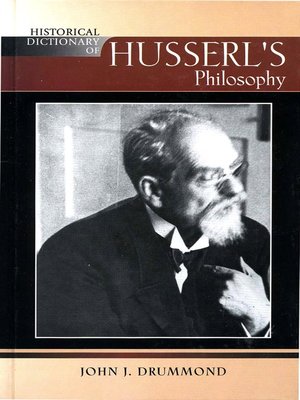
Sign up to save your library
With an OverDrive account, you can save your favorite libraries for at-a-glance information about availability. Find out more about OverDrive accounts.
Find this title in Libby, the library reading app by OverDrive.



Search for a digital library with this title
Title found at these libraries:
| Library Name | Distance |
|---|---|
| Loading... |
Edmund Husserl (1859-1938) is widely regarded as the founding figure of the philosophical movement of 'phenomenology.' Husserl's philosophical program was both embraced and rejected by many, but in either case, his ideas set the stage for and exercised an enormous influence on the development of much of the philosophy that followed. In particular, his thought provides the backdrop and impetus for movements such as existentialism, hermeneutics, and deconstruction. Also, because of his career-long concerns with logic and mathematics, there are many points of contact between Husserl's phenomenology and so-called 'analytical philosophy,' further cementing study of Husserl's thought across the philosophical spectrum. The Historical Dictionary of Husserl's Philosophy provides the means to approach the texts of Husserl, as well as those of his major commentators. This is done through a chronology, an introductory essay, an extensive bibliography, and hundreds of cross-referenced dictionary entries on key terms and neologisms, as well as brief discussions of Husserl's major works and of some of his most important predecessors, contemporaries, and successors.







